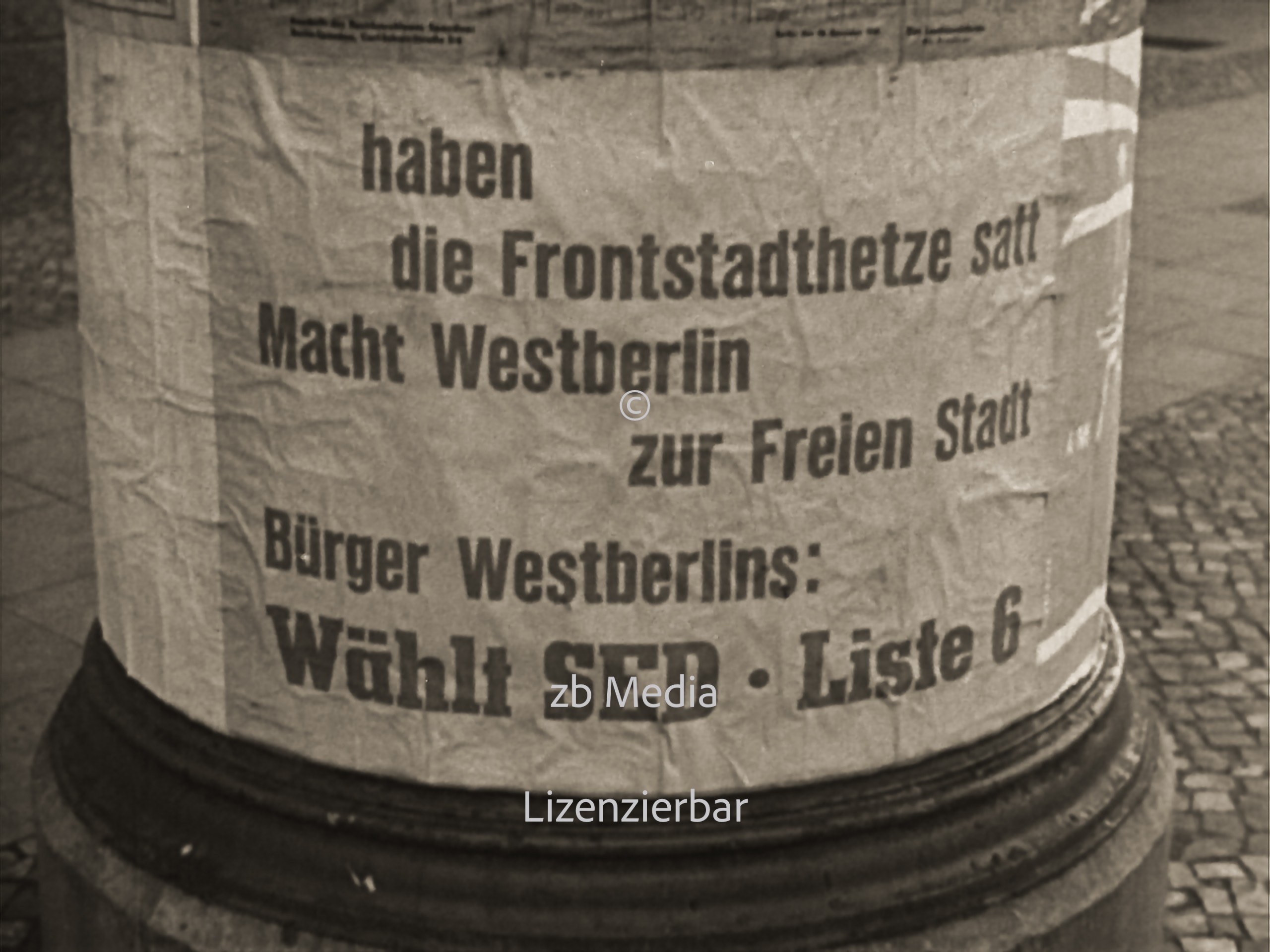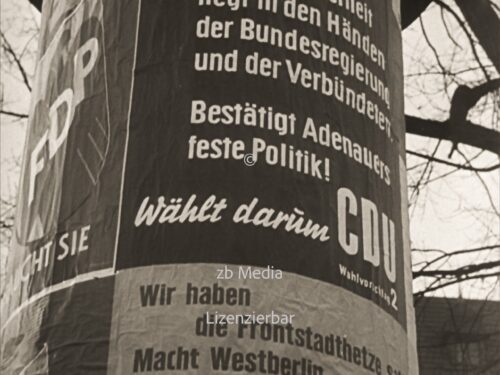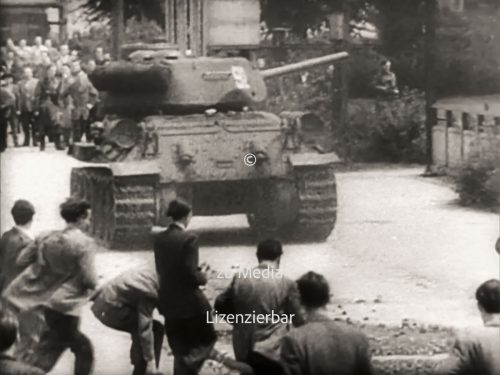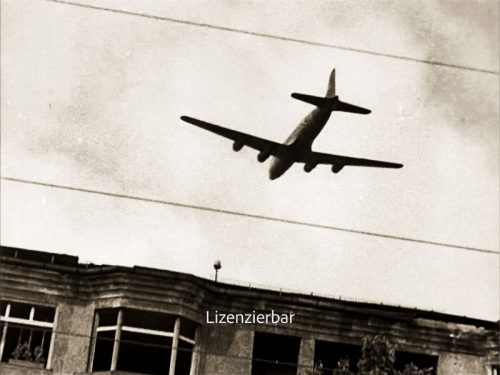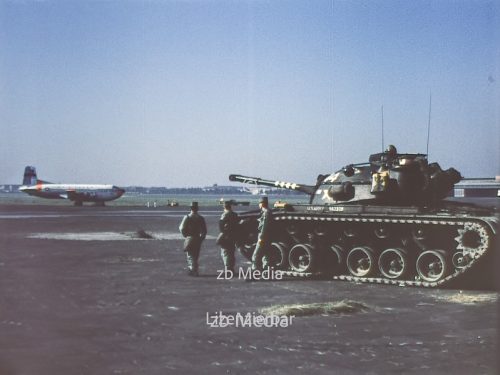Election to the Berlin House of Representatives 1958; Photo; Licensed article; Original: 2880×2160; Photographer: Unknown;a0 Licensable; Rights: a9 Bleek/zb Media.
Election to the Berlin House of Representatives 1958
Description
Election to the Berlin House of Representatives 1958; Photo; Licensed article; Original: 2880×2160; Photographer: Unknown;a0 Licensable; Rights: a9 Bleek/zb Media. The 1958 election to the Berlin House of Representatives was heavily influenced by the political tensions of the Cold War. It took place exclusively in West Berlin since East Berlin was under the control of the GDR government and no free elections were held there.
Historically shaping factors of the 1958 election:
Cold War and Berlin Crisis:
The election took place during a time of growing tensions between East and West. In 1958, the Soviet Union issued the “Berlin Ultimatum,” demanding that West Berlin become a “free city”—an attempt to push back Western influence.
West Berlin was an island within Soviet-controlled East Germany and was considered a symbol of Western democracy.
Victory of the SPD under Willy Brandt:
Willy Brandt was the top candidate for the SPD and won with his party securing 52.6% of the votes, earning him the office of Governing Mayor of Berlin.
He advocated a determined course against Soviet demands and sought to strengthen West Berlin’s close ties to the Federal Republic of Germany.
Brandt became a leading political figure in West Germany through the election and later became Chancellor (1969-1974).
High voter turnout and a clear rejection of the SED:
The voter turnout was 93.4%, demonstrating how strongly the population was committed to Berlin’s political future.
The SED and its influence in East Berlin were decisively rejected, as the election result showed clear support for democracy and the Western course.
Significance for the construction of the Berlin Wall in 1961:
The 1958 election reinforced West Berlin’s status as a Western stronghold against communism.
The Soviet leadership realized that political control over West Berlin was unattainable—a factor that contributed to the construction of the Berlin Wall in 1961 to stop the exodus from the GDR.
Conclusion:
The 1958 election was a setback for Soviet Berlin policy and strengthened West Berlin’s democratic alignment. Willy Brandt became a defining figure of the city, and his electoral victory was a clear signal for the close ties between West Berlin and the Federal Republic of Germany.
Additional information
| Lizenzgebhr | von € 90.- bis € 490.- |
|---|

